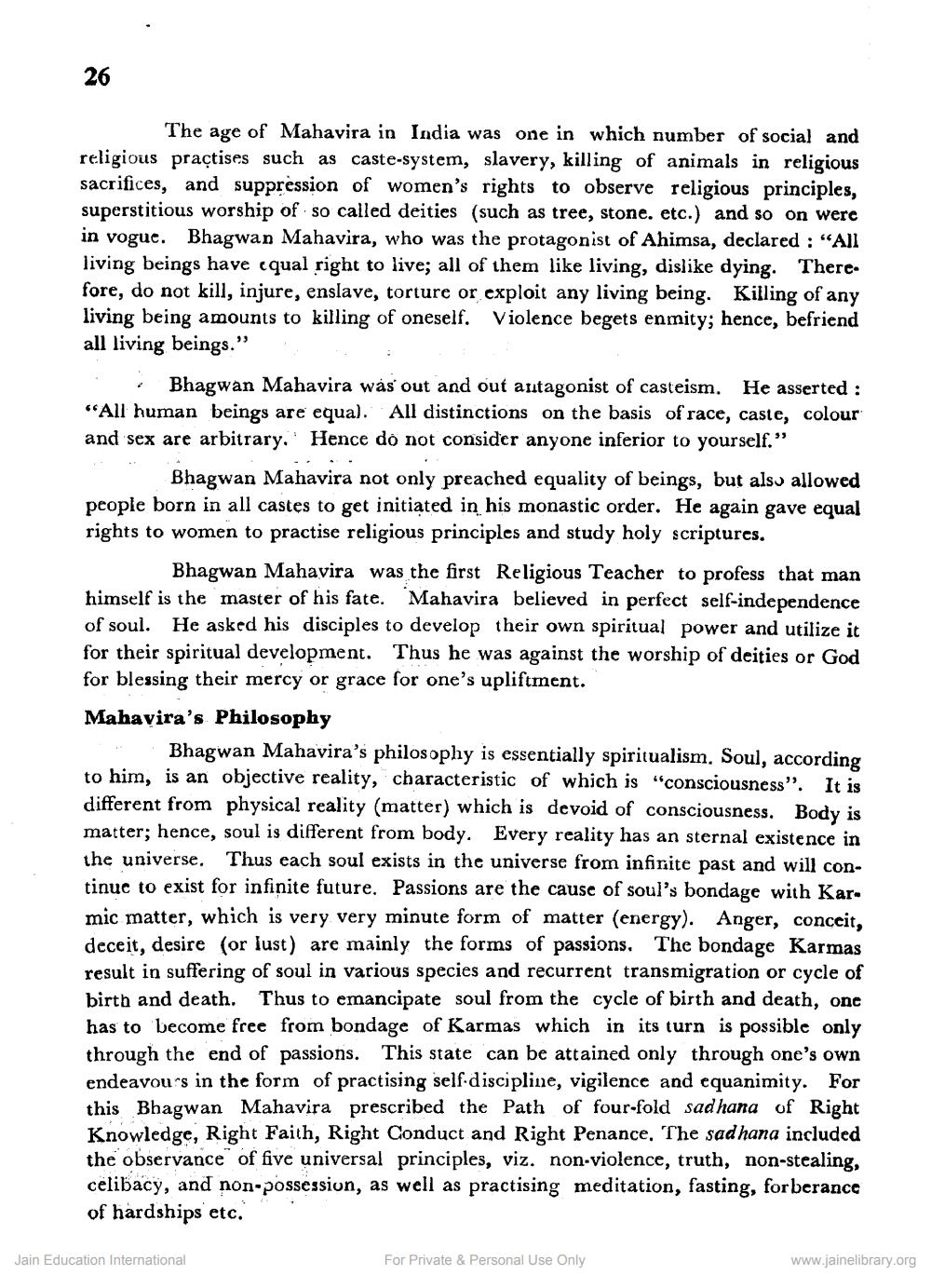________________
26
The age of Mahavira in India was one in which number of social and religious practises such as caste-system, slavery, killing of animals in religious sacrifices, and suppression of women's rights to observe religious principles, superstitious worship of so called deities (such as tree, stone. etc.) and so on were in vogue. Bhagwan Mahavira, who was the protagonist of Ahimsa, declared: "All living beings have equal right to live; all of them like living, dislike dying. There. fore, do not kill, injure, enslave, torture or exploit any living being. Killing of any living being amounts to killing of oneself. Violence begets enmity; hence, befriend all living beings."
Bhagwan Mahavira was out and out antagonist of casteism. He asserted: "All human beings are equal. All distinctions on the basis of race, caste, colour and sex are arbitrary. Hence do not consider anyone inferior to yourself."
Bhagwan Mahavira not only preached equality of beings, but also allowed people born in all castes to get initiated in his monastic order. He again gave equal rights to women to practise religious principles and study holy scriptures.
Bhagwan Mahavira was the first Religious Teacher to profess that man himself is the master of his fate. Mahavira believed in perfect self-independence of soul. He asked his disciples to develop their own spiritual power and utilize it for their spiritual development. Thus he was against the worship of deities or God for blessing their mercy or grace for one's upliftment.
Mahavira's Philosophy
Bhagwan Mahavira's philosophy is essentially spiritualism. Soul, according to him, is an objective reality, characteristic of which is "consciousness". It is different from physical reality (matter) which is devoid of consciousness. Body is matter; hence, soul is different from body. Every reality has an sternal existence in the universe. Thus each soul exists in the universe from infinite past and will continue to exist for infinite future. Passions are the cause of soul's bondage with Karmic matter, which is very very minute form of matter (energy). Anger, conceit, deceit, desire (or lust) are mainly the forms of passions. The bondage Karmas result in suffering of soul in various species and recurrent transmigration or cycle of birth and death. Thus to emancipate soul from the cycle of birth and death, one has to become free from bondage of Karmas which in its turn is possible only through the end of passions. This state can be attained only through one's own endeavours in the form of practising self-discipline, vigilence and equanimity. For this Bhagwan Mahavira prescribed the Path of four-fold sadhana of Right Knowledge, Right Faith, Right Conduct and Right Penance, The sadhana included the observance of five universal principles, viz. non-violence, truth, non-stealing, celibacy, and non-possession, as well as practising meditation, fasting, forberance of hardships etc.
Jain Education International
For Private & Personal Use Only
www.jainelibrary.org




